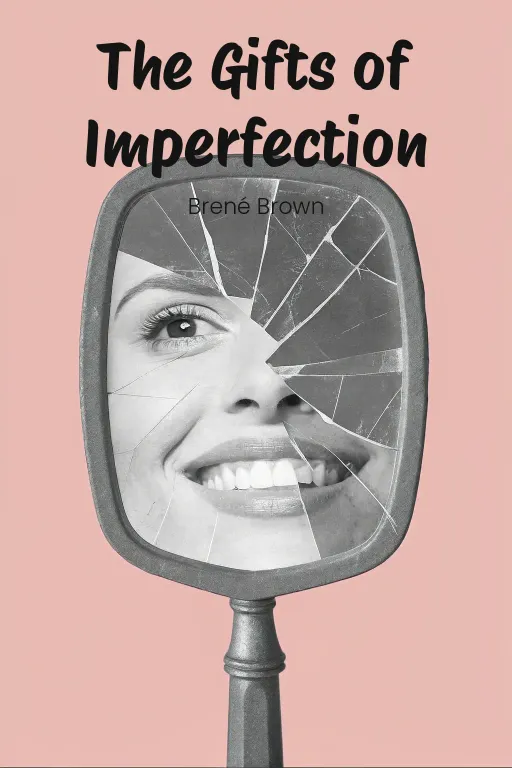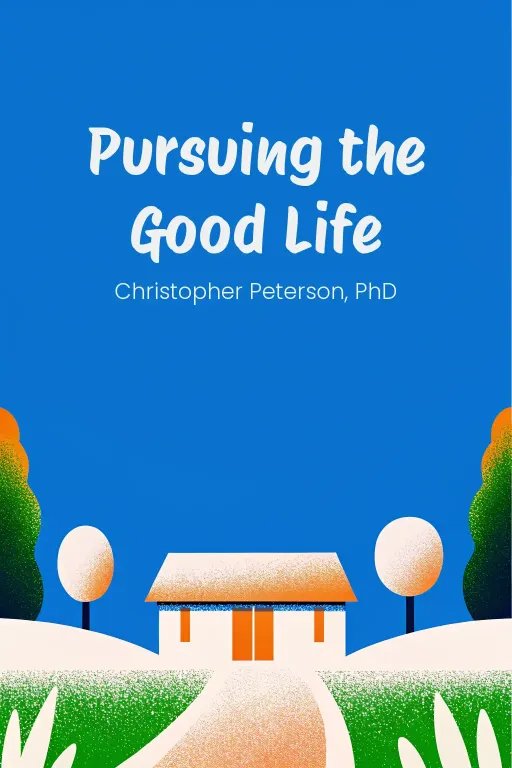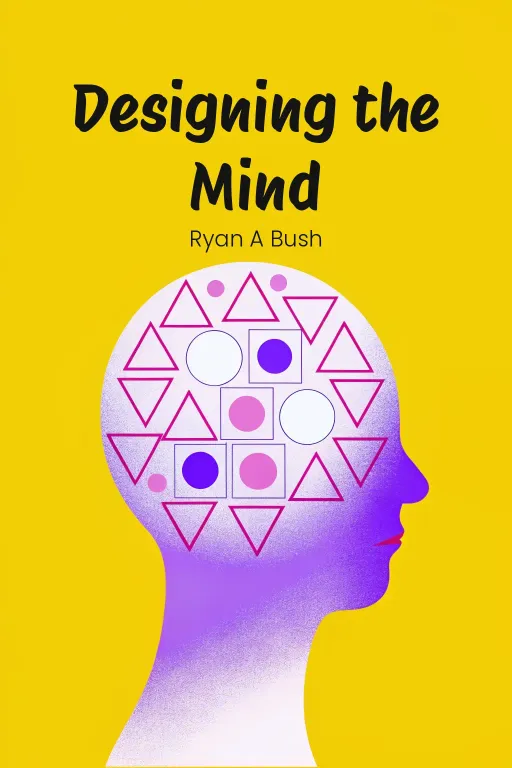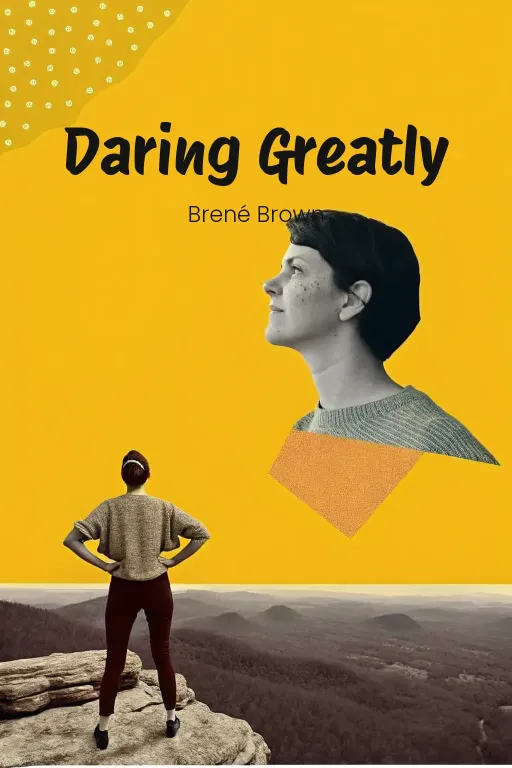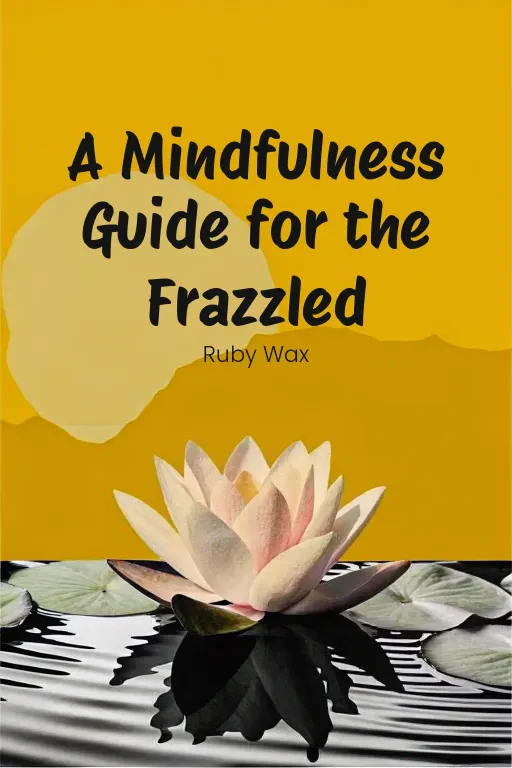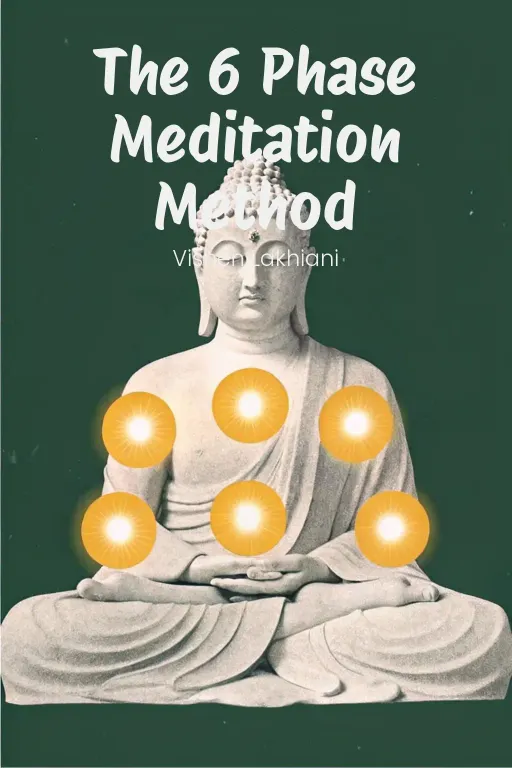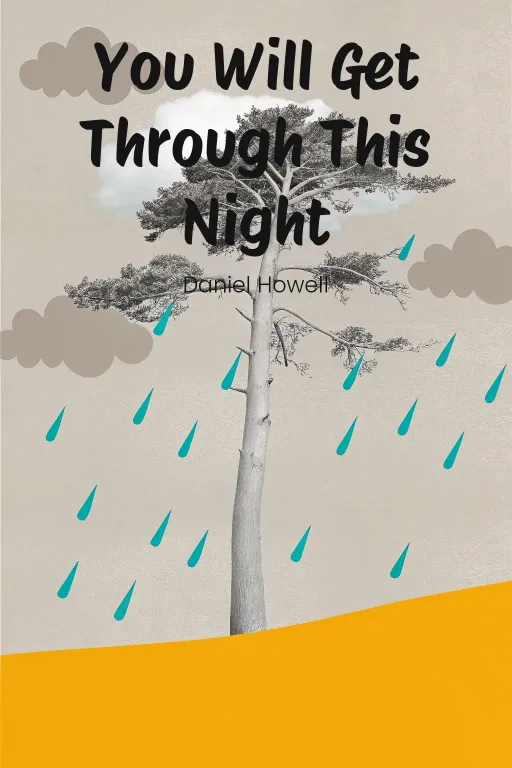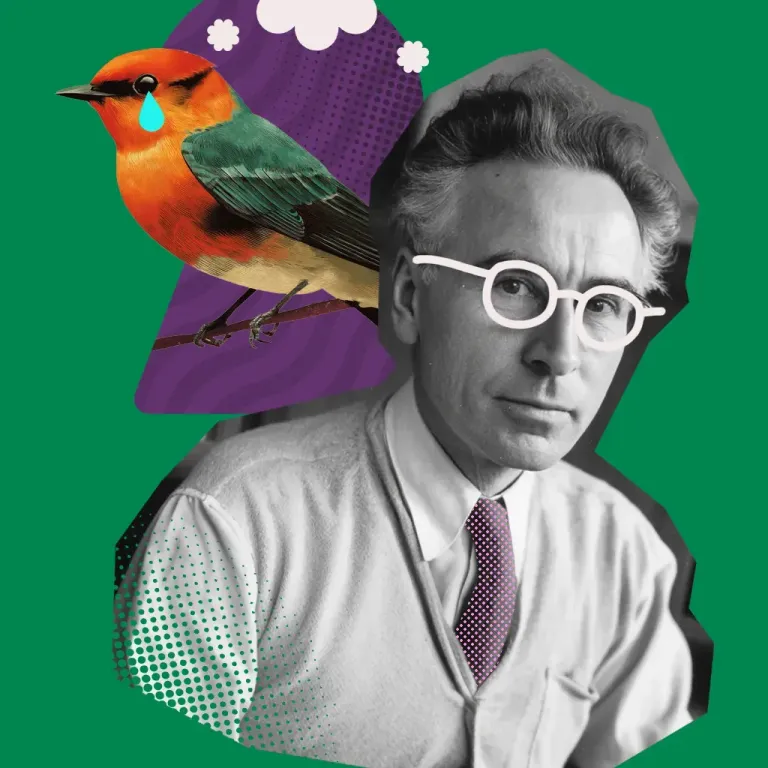
Meaningful Life: Find Purpose Now
Podcast by Beta You with Alex and Michelle
Introduction
Part 1
Alex: Hey everyone, welcome! Today, we're diving into Viktor Frankl's “Man's Search for Meaning,” which is “really” one of the most impactful books in modern psychology. It “really” grapples with some of life's biggest questions. You know, how do we handle pain, and how do we not just survive, but actually thrive, even when things are incredibly tough? Michelle: Thrive? Wow, Alex, most people I know are just trying to get through the day. Are we seriously about to ask everyone to rethink their entire existence? Alex: I know, right? And that’s exactly why Frankl's book is so relevant. It comes from his own experience of surviving Nazi concentration camps, but it’s not just a story. It’s “really” a guide to finding purpose, a way to be resilient, no matter what you're going through. Michelle: Okay, so let me guess the first thing we should do is hope for the best, and be prepared for the worst case, right? Alex: Well, in a way, yes, but Frankl goes much deeper. He developed this therapy called logotherapy, and it's all about how finding meaning is what “really” drives us. And the thing I found most interesting is he turns the question around. Instead of asking what we want from life, he asks, "What does life expect from us?" Michelle: Ah, life's giving us assignments now, huh? Alright, so what are we discussing today? Alex: So, we're going to look at three key ideas from Frankl. First, this paradox of suffering, how it's obviously painful, but it can also lead us to discover meaning. Second, some of the actual methods of logotherapy, which can help us make it through tough times. And third, how Frankl’s ideas offer some hope for all of us in this crazy world. So think of this conversation as ways to find your own deeper purpose, even when things feel chaotic. Michelle: Suffering, methods, hope. I got it. Sounds ambitious, but yeah, I'm curious. Let's see if Frankl can teach even people struggling to find the car keys a thing or two.
The Search for Meaning in Suffering
Part 2
Alex: So, Michelle, that brings us to a key idea in Frankl’s work: how suffering, as awful as it is, can actually become a source of meaning. It’s not about, you know, celebrating pain, but about changing how we see it, so it connects to something deeper. Michelle: Wait a minute, that sounds totally backwards. Most people try to avoid suffering, right? And for pretty good reasons. Why would anyone want to find it? Alex: Well, it’s not about actively searching for suffering, but recognizing that it’s part of life. Frankl says we can’t change that suffering exists, but we can choose how we react to it. Finding meaning is the key. It’s like, what’s the difference between just experiencing random pain and experiencing pain that’s connected to something bigger than yourself? Michelle: Okay, so it’s not about saying, "Great, suffering!" but more like, "I'm going to make this suffering “matter” somehow." I get it. But how does someone do that in real life? Alex: A good example is the story of the grieving doctor. He was really struggling after losing his wife and couldn't see any way to move forward. So, Frankl asked him to think about what would have happened if his wife had outlived him. The doctor realized she would have suffered a lot. Michelle: Right, and Frankl used that to change the way he saw things. The doctor’s grief became a final act of love—sparing his wife the pain of losing him. Wow, that's actually pretty powerful. Alex: It is! That’s a perfect example of turning suffering into something meaningful. The pain is still there, but now it has a purpose. It’s no longer just random anguish; it shows his love for her. Michelle: Okay, that’s a good example, but what about suffering on a larger scale? Does Frankl talk about applying these ideas to society as a whole? Not just personal pain, but when a whole group of people are suffering? Alex: Definitely. He talks about his experiences in the concentration camps, where suffering was everywhere. He noticed that the prisoners who made it through, mentally and emotionally, were the ones who found a "why" to keep going. Some held onto the idea of seeing their families again. Others focused on work they wanted to do after the war. Michelle: He’s the one who said, “He who has a why to live can bear almost any how,” right? So, that "why" is really important. Alex: Exactly. The "why" is what gives people the strength to get through the "how." Even in the camps, Frankl kept his sense of purpose by imagining that he would one day lecture about the psychology of survival. That became his focus. Michelle: Okay, that's pretty amazing. But what if someone just can't find a "why"? What if they’re facing a terminal illness or a really unfair situation? Are they just supposed to invent a purpose out of nowhere? Alex: Well, that’s where Frankl’s techniques can help. He talks about something called "perspective shift." Even in really tough situations, we can find meaning by changing how we see our suffering. Instead of asking, "Why me?" we can ask, "What am I being asked to do... right now?" Michelle: So, instead of feeling sorry for yourself, you focus on being responsible. That’s a brave idea, but it also sounds like a lot to handle. Alex: It is a responsibility, but Frankl says it’s empowering, not overwhelming. He believes we’re each called to respond to life’s challenges in our own unique way. That’s why the meaning of life isn’t some standard answer. It’s a personal thing that changes from moment to moment. Michelle: Okay, so we create meaning as we go, responding to challenges as they happen. But going back to what you said earlier about finding purpose through suffering in extreme situations… You mentioned perspective shifts, but do you have an example of this from recent times? Alex: Yes. Take Jerry Long, for example. At 17, he had a terrible spinal cord injury that left him paralyzed from the neck down. But instead of giving up, he decided to change his life’s purpose. By using special technology, he went to college and dedicated himself to showing others how to be resilient and inspired. Michelle: So, one of those people who believes that their tragedy doesn’t define them, but makes them stronger? Alex: Yes, in a way. But he wasn’t just ignoring his pain or faking that it didn’t exist. For Long, it was about actively engaging with life – taking the situation he was in and finding meaning within it. He famously said, “I broke my neck; it didn’t break me.” That’s a perfect example of logotherapy in action. Michelle: Okay, that’s “really” impressive. But doesn’t that make people who don’t find meaning in their suffering feel even worse? Like, if they can’t change how they see their grief or hardship, does that mean they’re failing? Alex: Frankl would say no. Meaning isn’t a competition. It’s a personal journey. Even small changes matter. For some people, just choosing to face their challenges with dignity is enough. He wrote that “the last of human freedoms” is how we choose to respond to our circumstances. Michelle: So, resilience isn’t about some big transformation, but about the small choices people make every day. That seems more realistic. Alex: Exactly. whether it’s as simple as finding humor in difficult times, or as significant as Jerry Long completely redefining his life, meaning is always within reach. And that’s what logotherapy is all about: finding purpose, even when everything else feels out of your control.
Practical Applications of Logotherapy
Part 3
Alex: So, understanding how meaning arises from suffering really leads us to this question: what are the practical tools that can help us find that meaning? This is where Frankl's philosophy really gets empowering for me – it's not just abstract theory. He gives us actual techniques we can use, you know, to bridge that gap between despair and resilience. Michelle: "Actionable," huh? So we're not talking vague, "search your soul" kind of advice? These tools actually have some bite to them? Alex: Exactly! Frankl developed two main methods in logotherapy: paradoxical intention and dereflection. And both are really designed to help people shift their focus and break those patterns of fear, anxiety, or feeling lost. And what I really love is how universal they are. You don't have to be in, like, a concentration camp to give these a try. Michelle: Okay, so walk me through it. What's paradoxical intention? Sounds like a complicated oxymoron. Alex: It's actually brilliant in its simplicity. It's about facing your deepest fears head-on by exaggerating or even, like, welcoming them. The paradox is that, by doing that, you rob those fears of their power. Let me give you an example to make it clearer. Michelle: Alright, I'm ready. Alex: Picture this: a young doctor was paralyzed by his fear of sweating. The mere thought of sweating in front of his colleagues would send him into such a panic that he'd inevitably…sweat even more! It became this terrible cycle, you know, with anxiety feeding on dread. Michelle: That sounds awful – and, yeah, pretty ironic. Poor guy. So, I guess Frankl came up with a solution? Alex: He introduced humor into the equation. The doctor was advised not to avoid it, but to actually try to amplify the thing he feared most. Frankl told him to think, "Today, I'm going to sweat as much as humanly possible. I'll aim for buckets!" Michelle: That's... counterintuitive, to say the least. But did it actually do anything? Alex: It really did! Once the doctor approached his fear with detachment and a bit of humor, the anxiety just kind of dissolved. Instead of fighting it, which only made it worse, he embraced it. And the emotional charge vanished, and the cycle broke. Michelle: Huh. So by flipping the script—owning the thing that terrifies you—it loses its hold? It's like telling your anxiety, "Sure, go ahead, do your worst," and then realizing it doesn't have the teeth you thought it, uh, did. Alex: Exactly! Frankl called it disarming the "self-fulfilling prophecy." Avoidance just fuels fear, but humor and exaggeration kind of starve it. And it's not limited to anxiety – paradoxical intention can work with other obsessions, too. Michelle: I can see how that might help with phobias or obsessive tendencies. But, Alex, not everyone's fears are ready for comic relief. What about people stuck in, like, chronic despair? Or that sense of a void? Alex: That's where Frankl's second technique comes in: dereflection. And it's about redirecting your focus, you know, away from your internal struggles towards something external – it could be relationships, responsibilities, meaningful work... Think of it as getting out of your own head and just really immersing yourself in the world around you. Michelle: Okay… but isn't that just a distraction technique? A nice way to avoid dealing with, you know, your internal mess? Alex: Not at all. Dereflection is about shifting your perspective from obsessing over "Why am I unhappy?" to engaging with things that naturally bring fulfillment. Frankl believed happiness isn't something we can pursue directly; it's a byproduct of truly living a meaningful life. Michelle: So happiness is the side effect, not the prescription. Got it. Do you have a concrete example of how this actually, you know, helps someone? Alex: Sure. Think about a young woman who was obsessed with finding perfect fulfillment in her relationships. She was stuck in a loop of frustration because no relationship could live up to her impossible ideals. Instead of dwelling on that, Frankl guided her to contribute to something bigger than herself – through work, volunteering, creative outlets... Michelle: Let me guess—her relationship fears all magically disappeared after she shifted her focus? Alex: Not exactly. But they gradually faded. By immersing herself in something larger than her own internal fears, she stopped obsessing and began to find that the fulfillment she was chasing came naturally. And that's the beauty of dereflection. It gets you out of that self-absorption and helps you connect with the world in a more meaningful way. Michelle: I have to admit, that's a refreshing take. It's about giving people tools that expand their lives, not just fix their anxieties. Alex: Precisely. Logotherapy basically teaches that meaning comes from engaging with life, not staring into the void and hoping, like, for enlightenment. Michelle: Speaking of engagement, let's talk about lucky number three: Jerry Long – your go-to, inspirational, “triumph over tragedy” case study. Alex: Ah, yes, Jerry Long. His story is quintessential logotherapy in action. At 17, he experienced a life-altering injury—a diving accident that left him paralyzed. Most people would’ve been consumed by despair. Instead, Long turned tragedy into purpose, finding meaning where others might see none. Michelle: Let me guess—one of those indestructible optimists? I mean, “I broke my neck; it didn’t break me” is a heck of a motto, but how did he actually live that out? Alex: He turned to education as his lifeline. Using adaptive technology, he went to college, wrote about resilience, and inspired others facing seemingly insurmountable challenges. His life became a living testament to Frankl’s principles—particularly the power of choosing one’s attitude in the face of suffering. Michelle: Okay, I’ll admit it. That is profoundly humbling. But let me ask you this—what happens when people try to apply these methods and fail? What if someone just can’t find meaning in the suffering they’re facing? Does that mean they’re doing it wrong? Alex: Not at all. Frankl was very clear that the search for meaning is deeply personal and doesn’t always yield instant clarity. Success isn’t about solving every existential riddle; it’s about making even small steps toward purpose. Choosing kindness in a bad moment, holding onto hope, or even just enduring with dignity—those are all victories. Michelle: So it’s less about arriving at some grand, life-altering conclusion and more about the tiny, meaningful choices people make every day. Alex: Exactly. Meaning isn’t found in some final destination—it’s built moment by moment, decision by decision. These tools—paradoxical intention and dereflection—they’re just starting points. What Frankl offers is the reminder that purpose is always within reach, no matter how bleak things may seem. Michelle: Alright, Alex, I’ll give you this. As much as I’m skeptical about grand philosophical systems, I can’t argue against the practicality of these tools. They don’t ask you to change the world—just how you see and respond to it. Alex: And that, Michelle, is the essence of Frankl’s genius.
Tragic Optimism and Collective Resilience
Part 4
Alex: So, while these tools definitely help us heal individually, Frankl’s philosophy also gives us a wider view for building strong societies. This idea of "tragic optimism" that he talks about? It's not just personal growth—it's really a call for us to transform things together, for communities to come together and find strength even when things are tough for everyone. Michelle: Okay, so we're going from individual self-help to, like, a global group therapy session? Tragic optimism for the whole world? Alright, Alex, you've got me curious. How do you even make that leap from "my own little bubble of pain" to actually "building resilient communities"? Alex: Well, it comes from how he saw the human spirit—how people who are going through really difficult times can actually come together for a shared purpose. Frankl believed that this shared purpose could really change societies. Think about what he called the "tragic triad"—suffering, guilt, and facing our own mortality. Communities, just like people, face these issues. But when they all work together, finding meaning in putting things back together, that's when real change starts. Michelle: Hold on a second. That whole "collective" thing sounds amazing in an inspirational quote, but isn't the real world way more complicated? We're living in societies that are so divided—politics, culture—it feels like that outweighs any sense of togetherness. Can we really find a shared sense of purpose in all that mess? Alex: Good point, Michelle. To answer that, let's look back at history. Think about Germany and Japan after World War II. They had to deal with total chaos—destruction, guilt, a complete cultural reset. And yet, both countries rebuilt themselves from the ground up by doing just that: sharing responsibility and working towards a common goal. Germany faced its past head-on with programs to get rid of Nazi influence and create democratic institutions, while Japan used its creativity and discipline to become a major industrial power. Michelle: Okay, that definitely sounds like resilience on steroids—turning national pain into this super-focused effort to rebuild. But I'm guessing it wasn't just some inspirational TED Talk moment where everyone suddenly decided to "find meaning together," right? Alex: Of course not, Michelle. It was messy, it was painful, and there were conflicts all over the place. But what tied it all together was trying to find meaning beyond just feeling hopeless—acknowledging the pain without letting it define them, and asking, "How do we rebuild with dignity?" These societies didn't just rebuild buildings and roads; they actually redefined who they were as a group. The hardships made them more determined to turn guilt, isolation, and loss into something meaningful. Michelle: So, tragic optimism in action: Germany rebuilds its democracy, Japan becomes an industrial superpower, and everyone learns that being sad isn’t the end of the road—it’s just a detour. Pretty inspiring, but that’s the past. What about now? Do you see any examples of this kind of collective resilience today? Alex: Absolutely. Think about the efforts after natural disasters. Take the 2011 tsunami in Japan—whole communities rebuilt everything together, not just physically but also emotionally. Or look at global movements fighting against injustice. The common thread in all of this is solidarity, turning shared suffering into collective action. Michelle: Okay, but here's where I get a little skeptical: Isn't this always easier said than done? What happens when tough times break communities apart instead of bringing them together? What would Frankl say to that—especially when the "why" feels so far away, maybe even impossible to find? Alex: Frankl's belief was that even a tiny bit of hope is what keeps people and societies going. He used to tell a story about a block warden at Auschwitz who encouraged others to keep going by reminding them of their responsibilities—unfinished work, loved ones waiting for them. That little spark—a reason to keep going—even in the worst conditions, inspired others. The point is to help that spark grow as a group. Michelle: Using responsibility as a rallying cry. But that Auschwitz story is really intense, Alex. Is it really fair to say that communities facing less extreme situations need the same kind of tools to heal? Like, where's the shared "why" in, say, burnout in our digital, divided world? Alex: That's a really interesting question because burnout often comes from feeling disconnected—from people, from goals, or from any sense of purpose. The answer lies in compassion and creativity, which Frankl emphasized as tools for resilience. A society that's burned out can come together by showing empathy, dealing with shared pain instead of ignoring it, and using that pain to make positive changes. Michelle: So, basically, less time spent scrolling through bad news, more time actually connecting with people. But seriously, I get what you're saying. Tragic optimism isn't about fixing everything all at once; it's about building those small connections and doing things together that slowly rebuild broken societies. Can you think of any examples that really show this today? Alex: Things like grassroots activism or community rebuilding projects come to mind. Think about how people all over the world came together during the pandemic to connect with people who were alone, deliver food to those who needed it, or just create online groups for support. These were small actions, but they showed tragic optimism in a really powerful way. Michelle: So, it's not about having unrealistic hopes—it's about having hope that's based on reality, grounded in action, no matter how small. That’s… actually refreshing. And it sounds surprisingly achievable, even in our messy, divided world. Alex: Exactly. And it all goes back to Frankl's main point: Saying "yes" to life, no matter what challenges you face, is a powerful force. When people and societies choose to say "yes" together, finding ways to create shared meaning, even when things are chaotic, that's when resilience really takes hold.
Conclusion
Part 5
Alex: Okay, so to bring it all together, Frankl’s “Man’s Search for Meaning” really shows us that while we can't escape suffering, how we deal with it makes all the difference. We talked about finding meaning by looking at pain differently, getting involved in things bigger than ourselves, and taking charge, even when things seem hopeless. And ideas like logotherapy, paradoxical intention, dereflection... Those give us real tools for handling tough times, both personally and as a group. Michelle: Right. The big takeaway for me is that Frankl tells us meaning isn’t just given to you, you know? It’s built, one choice at a time. It’s not about avoiding the mess of life, but about staring it down with a sense of purpose and... yeah, a little hope. Deep stuff, definitely, but also incredibly human, don’t you think? Alex: Absolutely. So, to leave everyone with something to think about: What’s life asking of you right now? What’s one small thing you can do to find meaning in whatever you're facing? Because even when things are crazy, there’s always a chance to choose purpose. Thanks so much for tuning in—keep exploring, stay strong, and remember, meaning is always possible. Michelle: Yeah, thanks for listening, everyone. Keep living meaningfully!


